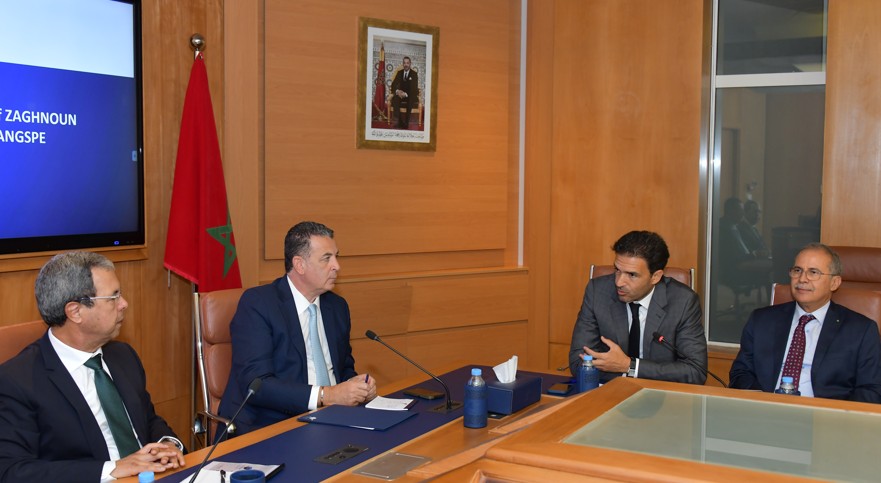On July 4 in Casablanca, Morocco’s National Agency for Strategic Management of State Holdings (ANGSPE) and the General Confederation of Moroccan Enterprises (CGEM) held a high-level strategic dialogue aimed at strengthening cooperation between public and private sectors to boost the national economy.
The meeting, hosted at the CGEM headquarters, served as a platform to review progress on the ongoing reform of public institutions and enterprises (EEP). The discussion also tackled key issues seen as essential to building a more competitive and attractive economic environment.
At the core of the exchanges was the shared commitment to deepen collaboration between state-owned enterprises and the private sector, in line with the government’s State Shareholding Policy. The focus is on creating clearer distinctions between public and private roles, expanding public-private partnerships, and ensuring fair market competition.
CGEM President Chakib Alj highlighted the significant role of public institutions in Morocco’s economy, noting that these entities generate over 345 billion dirhams in annual revenue and are expected to invest around 115 billion dirhams in 2024. He emphasized that the transformation of these public enterprises is not just a technical reform but a national priority, as they play a vital role in supporting businesses, especially small and medium-sized enterprises.
The talks explored several key areas, including the potential of public enterprises to act as catalysts for private investment by helping to build strategic industrial ecosystems. The long-term vision aims for a more balanced investment landscape by 2035, with two-thirds of investments coming from the private sector and one-third from the public sector.
Governance was another major focus. Participants stressed the need to align the decision-making bodies of public enterprises with international best practices and to professionalize their management. One of the pillars of the reform is the conversion of commercial public institutions into joint-stock companies (TSA), a move designed to clarify their mandates, improve governance, and diversify funding sources. In this context, Omar Zaghnoun called for a deeper transformation that goes beyond legal status changes to instill a genuine entrepreneurial mindset within these organizations.
The dialogue also underscored the essential role that state-owned enterprises must play in building a competitive, value-creating economy. Participants stressed the importance of setting clear ownership strategies that balance the imperatives of national sovereignty, public service, and economic development.
